25th April 1974 in Portugal
The Censored Voices of the Carnation Revolution
My grandmother, her brother and sister, my great grandparents on a friend's wedding (in the 1940's) – photograph: private
By Cláudia, participant of the eCommemoration Campus 2020
A story of revolution, hunger and censorship told by members of my family. They witnessed the fall of the dictatorship in Portugal and the Carnation Revolution in 1974. What was it like be a child or worker at that time? How did they manage to stay strong in times of uncertainity and turmoil?
My grandmother Isabel was part of an ordinary Portuguese family, living in Aveiro, a city located in central Portugal. She was born in 1950. António, my grandfather, was born in 1949. In 1970, they got a child, my mother Cármina. My father, Vitor, was born in 1969 in Alentejo, southern Portugal.
These are their testimonials.
My grandmother Isabel was part of an ordinary Portuguese family, living in Aveiro, a city located in central Portugal. She was born in 1950. António, my grandfather, was born in 1949. In 1970, they got a child, my mother Cármina. My father, Vitor, was born in 1969 in Alentejo, southern Portugal.
These are their testimonials.
"We turned the volume up on the radio and heard that song while tears were running down our faces. Hope is what we felt when that happened. In that moment we knew that everything would be alright."

My grandparents and family on the Festival of St John, a religious holiday in their village (in the1950's) – photograph: private
1. Under the Dictatorship
"Everyone was afraid of saying anything."
In May 1926, Portugal suffered a military coup that led to the election of Óscar Carmona in 1928. It was the birth of the Portuguese military and national state dictatorship.
After that, the 1933 constitution was elaborated and the new fascist regime lead by António Salazar was implemented. It controlled the country through the only political party allowed at the time, called the National Union. Although Salazar got out of the power because of his incapacity to rule, he was soon substituted by Marcelo Caetano.
There was no freedom of expression, it was not allowed to talk about the government and letters from the husbands far away in the war were confiscated and censored with the so-called "blue pencil": everything concerning the government was eliminated.
My mother Cármina was a small child at that time, living in an ordinary house on the countryside in the region of Aveiro with her parents. She was young – but remembers some things and moments that scared her.
After that, the 1933 constitution was elaborated and the new fascist regime lead by António Salazar was implemented. It controlled the country through the only political party allowed at the time, called the National Union. Although Salazar got out of the power because of his incapacity to rule, he was soon substituted by Marcelo Caetano.
There was no freedom of expression, it was not allowed to talk about the government and letters from the husbands far away in the war were confiscated and censored with the so-called "blue pencil": everything concerning the government was eliminated.
My mother Cármina was a small child at that time, living in an ordinary house on the countryside in the region of Aveiro with her parents. She was young – but remembers some things and moments that scared her.
"We would run around the town, and we had to be quiet, because everyone was afraid of saying something that the PIDE wouldn't like."
PIDE was the International Police and State Defense of Salazar's Dictatorship. Its responsibility was to repress the opposition of the regime, moreover, PIDE was in charge of managing border traffic and control foreigners at the Portuguese borders.

My grandparents with my mother Cármina (1976) – photograph: private
PIDE was the International Police and State Defense of Salazar's Dictatorship. Its responsibility was to repress the opposition of the regime, moreover, PIDE was in charge of managing border traffic and control foreigners at the Portuguese borders.
Gender separation was part of everyday life: men worked outside their homes while women stayed at home. At school, children were separated by gender, sometimes, the girls attended school in the morning and the boys began as soon as the girls finished classes at noon.
Voting was not a thing, at least for women who didn't complete the 12th grade. Sadly, this applied to the majority of women at the time, as they usually stayed at home to take care of the children. The few women who worked outside their homes tended to be nurses and flight attendants of TAP, who were not allowed to marry. Female professors were the only exception: they could work outside and get married, but they had to have a special autorization from their husbands to work outside their homes.
Gender separation was part of everyday life: men worked outside their homes while women stayed at home. At school, children were separated by gender, sometimes, the girls attended school in the morning and the boys began as soon as the girls finished classes at noon.
Voting was not a thing, at least for women who didn't complete the 12th grade. Sadly, this applied to the majority of women at the time, as they usually stayed at home to take care of the children. The few women who worked outside their homes tended to be nurses and flight attendants of TAP, who were not allowed to marry. Female professors were the only exception: they could work outside and get married, but they had to have a special autorization from their husbands to work outside their homes.
2. Hope for Salazar's Death
"Hunger was pretty common."
That times were tough is described in thousands of books and studies about the revolution. For the low working class they were even tougher. But their voices stay silent in our history books.
That times were tough is described in thousands of books and studies about the revolution. For the low working class they were even tougher. But their voices stay silent in our history books.
My grandmother Isabel, now 70 years old, remembers how difficult and exhausting their lives were during the dictatorship: "We didn't have much. Kids were stealing food, the elderly didn't have any money, hunger was pretty common. The soup of the poor was the only source of food for some people, but was really hard to get, just like the bread."
Food was scarce, all of my interviewees told me. However, they stuck together, hoping that one day Salazar would die or resign. They had to find ways of making money, like selling eggs or dried beans that they could have eaten. But they needed some money to buy other goods.
Food was scarce, all of my interviewees told me. However, they stuck together, hoping that one day Salazar would die or resign. They had to find ways of making money, like selling eggs or dried beans that they could have eaten. But they needed some money to buy other goods.
"My brother was working in construction in a town close to ours. He told our mother that kids were stealing his food and that he would come home hungry. The hunger was very hard to go through, and even I starved for some days. We repurposed everything we could. One meal fed us for several days. Our clothes were patched, our old dresses were reused as underwear."
My family was lucky: the farm of my grandparents supplied them with most of the food. But for many people in Portugal, getting enough to eat was a daily struggle.
Remembering her situation, my grandmother described the constant effort to make the best of the few things they had: "I remember coming from the farm, while granddad was watering the crops, and I came back up to our house to make supper, I searched for bread and there was none to be found. I continued my search for food and there was only a cabbage. I ran to my mother's house to get a piece of chorizo that she made from the meat of our cows, and prepare a soup with those few ingredients I had. The meal would feed us for several days."
The food was strictly rationed, sometimes there was only enough meat to feed one person, and most of the time there was no meat at all. Farmers were the only people who had access to meat, but they mostly sold it to make money, they did the same with milk. Vitor, 52 years old now, still remembers how the food shortage shaped his childhood.
Remembering her situation, my grandmother described the constant effort to make the best of the few things they had: "I remember coming from the farm, while granddad was watering the crops, and I came back up to our house to make supper, I searched for bread and there was none to be found. I continued my search for food and there was only a cabbage. I ran to my mother's house to get a piece of chorizo that she made from the meat of our cows, and prepare a soup with those few ingredients I had. The meal would feed us for several days."
The food was strictly rationed, sometimes there was only enough meat to feed one person, and most of the time there was no meat at all. Farmers were the only people who had access to meat, but they mostly sold it to make money, they did the same with milk. Vitor, 52 years old now, still remembers how the food shortage shaped his childhood.
"My mother went to queue for bread every morning at 4 a.m., and I remember one particular morning when there was no bread for anyone in our family. She was so cold that she had exchanged a piece of bread with the jacket of a lady."
3. The Carnation Revolution
"The day was coming, the day when freedom returned."
After both signal songs were played by the national radio, "Depois do Adeus – After the goodbye" and "Grândola Vila Morena", the military forces took over the Pedras Rubas Airport and the RTP (Portuguese Radio and Television) in Porto. There were counterattacks, instructed by defense minister Joaquim da Silva Cunha, but the military forces were on the revolutionaries' side already. The Calvary of Santarém took over the Terreiro do Paço (a popular square in Lisbon) and Salgueiro Maia (leader of the Portuguese military forces) moved his forces to the Quartel do Carmo, the seat of then prime minister Marcelo Caetano.
At the end of the day, the government admitted defeat – the MFA (movement of the militar forces) would win no matter what. Marcelo Caetano conceded victory to the revolutionists, handing over the power to António Spínola. Shortly afterwards, he left Portugal to Madeira, and soon after went to exile in Brazil.
Grândola Vila morena was the signal that the revolution had started. Under the dictatorship, the battel song of the anti-fascist songwriter José Afonso was banned. To hear it meant hope for the end of the ditatorship.
At the end of the day, the government admitted defeat – the MFA (movement of the militar forces) would win no matter what. Marcelo Caetano conceded victory to the revolutionists, handing over the power to António Spínola. Shortly afterwards, he left Portugal to Madeira, and soon after went to exile in Brazil.
Grândola Vila morena was the signal that the revolution had started. Under the dictatorship, the battel song of the anti-fascist songwriter José Afonso was banned. To hear it meant hope for the end of the ditatorship.
Grândola Vila Morena - Zeca Afonso
"Grândola Vila morena,
Grândola, tanned Town
Terra de Fraternidade
Land of fraternity
O Povo é quem mais ordena
It's the people who lead
Dentro de ti ó Cidade!
Inside of you, oh City!
Dentro de ti, ó Cidade
Inside of you, oh City
O povo é quem mais ordena
It's the people who lead
Terra da fraternidade
Land of fraternity
Grândola, Vila morena
Grândola, tanned Town"
"Grândola Vila morena,
Grândola, tanned Town
Terra de Fraternidade
Land of fraternity
O Povo é quem mais ordena
It's the people who lead
Dentro de ti ó Cidade!
Inside of you, oh City!
Dentro de ti, ó Cidade
Inside of you, oh City
O povo é quem mais ordena
It's the people who lead
Terra da fraternidade
Land of fraternity
Grândola, Vila morena
Grândola, tanned Town"
"Em cada esquina um amigo
On each corner there's a friend
Em cada rosto igualdade
In each face there's equality
Grândola, Vila morena
Grândola, tanned Town
Terra da fraternidade
Land of fraternity
Terra da fraternidade
Land of fraternity
Grândola, Vila morena
Grandola, tanned Town
Em cada rosto, igualdade
In each face there's equality
O povo é quem mais ordena
It is the people who lead"
"À sombra duma azinheira
In the shadow of a holm oak
Que já não sabia a idade
Which no longer know its age
Jurei ter por companheira
I swore as my companion,
Grândola, a tua vontade
Grandôla, your will
Grândola, a tua vontade
Grândola, your will
Jurei ter por companheira
I swore as my companion
À sombra duma azinheira
In the shadow of a holm oak
Que já não sabia a idade
Which no longer knew its age"

My grandmother with my mother (1976) – photograph: private
Meanwhile in Aveiro: Resting after a long and hard day on their farm, my grandparents António and Isabel were listening to the radio: "It was late when we heard the song 'Depois do Adeus - After the Goodbye'. We didn't know what was happening. But in the middle of the night we woke up to 'Grândola Vila Morena' and because it was a censored song we realized: The day was coming, the day when freedom returned".
They didn't have access to TV, so everything they knew came from the radio. It was only after the revolution that they had a TV and were able to watch the scenes of what had happened on screen - and they watched closely.
In the following two years, Portugal went through a period of revolutionary process and transition, shaped by turmoil, violence and a wave of emigration. On 25th April 1975, the first free elections took place and the Socialist Party won. The first constitution was approved one year later, Mário Soares became the new prime minister of Portugal.
They didn't have access to TV, so everything they knew came from the radio. It was only after the revolution that they had a TV and were able to watch the scenes of what had happened on screen - and they watched closely.
In the following two years, Portugal went through a period of revolutionary process and transition, shaped by turmoil, violence and a wave of emigration. On 25th April 1975, the first free elections took place and the Socialist Party won. The first constitution was approved one year later, Mário Soares became the new prime minister of Portugal.

My grandparents, my mother and her sister with other members of the family (1980) – photograph: private
"On May 1st we started to be freer, and to be more hopeful. For the first time, the African slaves of the Portuguese colonies had the opportunity to work in Portugal as free men."
May 1st, 1974: For the first time after the dictatorship, Labor Day was celebrated as a national holiday. During the dictatorship years this day had been censored. Since 1974 families get together on the 1st of May, go on picnics and honor this day.
"This was the revolution that the population needed and wished for many years. And when it actually happened, it was hard to believe. The first years afterwards were hard, but they were certainly better. After the first free election we seemed to be another country, we were finally free."
Sources: Historical background provided on this web page is based on: "A Revolução Portuguesa: Estado e Classes Sociais na transição para a democracia" by Ronald H. Chilcote and "1974 - O ano que começou em Abril" by António Luís Marinho and Mário Carneiro

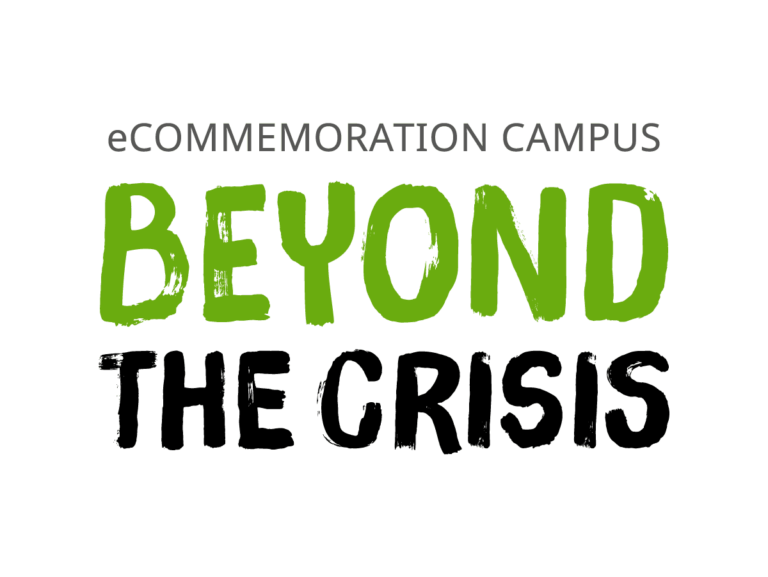







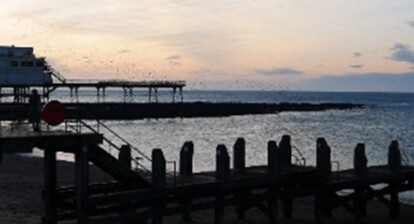
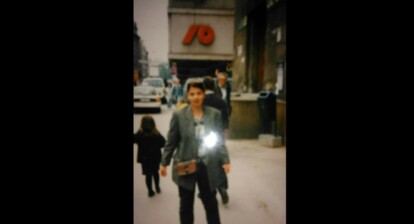
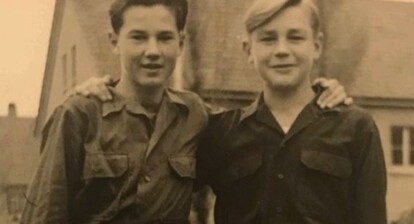
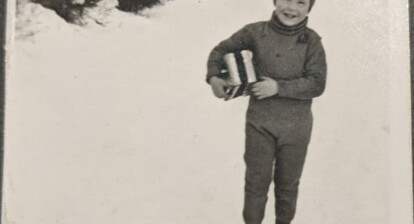
Pingback: The Portuguese Ultramar - EUSTORY History Campus